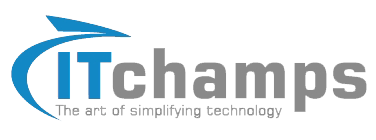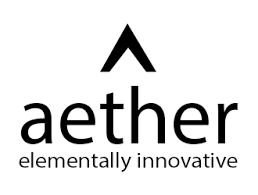Unlock 2X Business Growth with the National Apprenticeship Promotion Scheme (NAPS)
Join the Ranks of Top Employers: Hire Apprentices with MYTAT
Enquire for Apprenticeship
Top employers choose MYTAT for apprentices
Employer to earn
Your total workforce:
- Total Saving / Per Month :
- Total Annual Saving :
| Without NAPS | With NAPS and Insurance | |
|---|---|---|
| Average Salary Considered: | ₹ 10,000 | ₹ 10,000 |
| pf@13%: | ₹ 1300 | - |
| ESI @3.25%: | ₹ 325 | - |
| LWF: | ₹ 40 | - |
| Bonus: | ₹ 833 | - |
| Total Employee Cost without Naps reimbursement: | ₹ 12498 | - |
| GPA+WC+Health Insurance per Employee: | - | ₹ 250 |
| NAPS reimbursement: | - | ₹ 1,500 |
| Stipend to NAPs Apprentice: | - | ₹ 8,750 |
| Saving Per Apprentice per month: | - | ₹ 3748 |
| Total Saving Considering 15% Apprentice Intake (Per Month): | - | - |
| Total Annual Saving: | - | - |
Apprenticeship in India
The Apprentices Act, 1961 was enacted with the objective of regulating the program of training of apprentices in the industry by utilizing the facilities available therein for imparting on-the-job training. As the 1961 law was old and with changing times needed revamping - Government of India has brought about comprehensive reforms in the Apprenticeship Act in 2014 & the Apprenticeship Rules in 2015 to make apprenticeship more industry-friendly. Features of the act and key changes made are -
Ministry of Skill Development and Entrepreneurship (MSDE) & Ministry of Human Resource & Development (MHRD) are responsible for the implementation of the Act
Any company or establishment with headcount > 3 is eligible but it is mandatory as per law for any company or establishment with headcount > 30 to engage apprentices
An apprentice is paid a consolidated monthly stipend, without statutory ESI and EPF contributions and deductions.
An apprentice cannot be an employee of the organization - Section 18 of the Apprentices Act, 1961 stipulates that the apprentices are trainees and not workers. The provisions of any law with respect to labour shall not apply to or in relation to such apprentice
Removal of prescriptive, quota-based apprenticeship norms and the introduction of a flexible need-based band minimum 2.5% to a maximum of 15% of total headcount to be engaged
Introduction of Optional Trades under the apprenticeship programme, which shall be designed by industry. This will train the youth to become industry ready with workplace relevant skills
Including the service industry under the ambit of the act
Linking short term skill development programs and training to the apprenticeship programme
You can choose the apprentice you want – fully at liberty to follow the normal selection process
About Mytat
As a premier resource augmentation provider across India, Mytat is instrumental in supporting businesses harnessing the National Apprenticeship Promotion Scheme (NAPS) TPA. With a job board housing nearly 4 million candidates, we offer a vast pool of talent for apprenticeship opportunities. Additionally, Mytat organizes both virtual and physical job fairs, fostering connections with a wide network of ITI, Diploma, Degree, and Engineering colleges. These initiatives enhance industry-academic collaboration, facilitating seamless integration of apprentices into workforce roles. Our certifications are highly esteemed, empowering individuals and corporations to elevate their career prospects. Partner with Mytat for comprehensive NAPS TPA solutions and unlock unparalleled growth opportunities.
The Far-reaching Impact of Our Apprenticeship Program
1200+ Apprenticeship Contract Generated
100+ Establishment signed up for Apprenticeship
10+ States penetrated at Pan India Level
20+ Skill Councils(SSCs ) Covered
Candidate verification
Our recommendation
- We can verify certificates across Bachelor’s, and Master’s and Doctorate levels. At the minimum, we recommend that the highest-level certificate for every employee must be verified.
For Any Queries please contact on:
- +91 99992 19656
- naps@mytat.co
Navigate the World of Apprenticeships
Your Comprehensive Apprenticeship Knowledge Base
Frequently Asked Questions
For detailed information on apprenticeship training and its regulations, refer to the provided FAQs. Familiarizing yourself with these answers will bring clarity to the National Apprenticeship Promotion Scheme (NAPS).
Yes –
- All establishments having workforce (regular and contract employees) of 30 or more are mandated to undertake Apprenticeship Programs in a range from 2.5% -15% of its workforce (including contractual employees) every year.
- For establishments having a workforce between 4-29 this is optional.
- Establishments have a workforce of 3 or less are not permitted to engage apprentices.
National Apprenticeship Promotion Scheme (NAPS) is a new scheme of Government of India to provide financial support to establishments undertaking the apprenticeship training. It was launched on19th August 2016.
To promote apprenticeship training in the country. To provide financial support to establishments to undertake apprenticeship programs in the following ways:-
- To support establishments, (especially MSMEs) to engage apprentices under the Apprentices Act and pay stipend to them as per prescribed rates wherein under NAPS 25% of prescribed stipend subject to a maximum of Rs. 1500/- per month per apprentice is reimbursed to such establishments by the Government of India to engage apprentices.
- To support the establishments, (especially MSMEs) per apprentice for a maximum of 500 hours is reimbursed to them (to be calculated @ Rs. 15/hour) /or to the Basic Training Provider engaged by them under NAPS by the Government of India.
Basic training consists of theoretical and practical/lab instructions portion of every Apprenticeship Programme syllabi relating to a particular trade in which on-the-job-training is to be imparted. The basic training is an essential component of apprenticeship training for those who have not undergone any institutional training/skill training before taking up on-the-job-training/practical training. Basic Training is imparted to the fresher apprentices for acquiring a reasonable ability to handle Instruments/Machineries/Equipment independently prior to being moved to Shop Floor/Work Area for practical training / On-Job Training
Basic Training usually accounts for 20-25% of the duration of the overall Apprenticeship Programme, but can vary depending on the specific requirement of the curriculum.













.gif)




